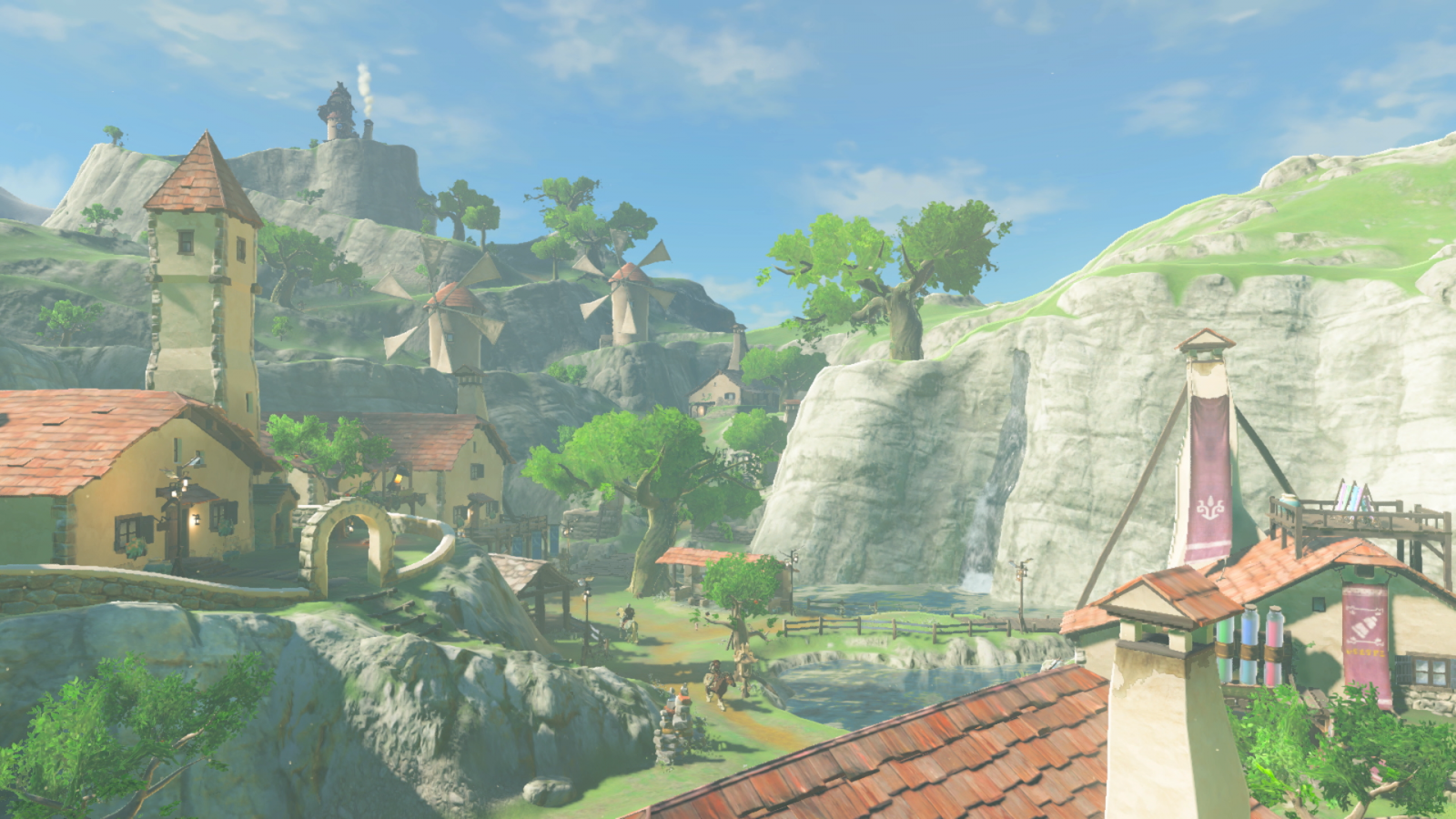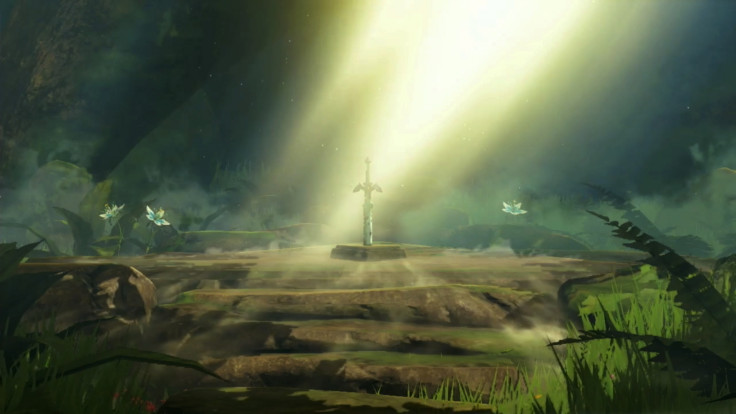The Legend of Zelda: Breath of the Wild review - Nintendo's open-world masterpiece defines adventure
A stunning reinvigoration of a beloved series and one of the finest launch titles Nintendo Switch could have wished for.
The Legend of Zelda: Breath of the Wild
Platforms: Nintendo Switch (tested), Wii U
Developer: Nintendo
Publisher: Nintendo
Release Date: 3 March
Thirty-one years ago, Shigeru Miyamoto's The Legend of Zelda was designed to evoke the mystery of exploration and childhood adventure. The idea stemmed from the famed developer's fond memories of the Japanese countryside, discovering glimmering lakes, dangerous caves and beautiful meadows.
The series has evolved significantly from its first entry for NES, hitting highs with 1991's A Link To The Past and 2002's Wind Waker. It was 1998's Ocarina of Time, however, that resonated most with fans.
Ocarina was a video game fairy tale: a simple story of good versus evil told in the unforgettable world of Hyrule. In the intervening years Nintendo has looked to that game as the formula for Zelda's attempted and accomplished successes – until now.
When The Legend of Zelda: Breath of the Wild was announced in 2013, series producer Eiji Aonuma revealed his team would be "rethinking the conventions of Zelda". With an enormous open world and less linear approach, it was apparent Nintendo planned to go back to the series' roots.
This means a freedom of exploration the series hasn't enjoyed since that first game, given life by features that largely keep player focus on the world and what's happening in it, rather than the game's mini-map. Questlines will take you from important point to important point should you choose to follow, but turn that information off – or have it turned off when a side quest opens up – and the world will naturally funnel you towards the game's five key story locations. Likewise, a feature of the game's Sheikah Slate item that allows you to track items and locations, will only offer a vague compass-like indication of direction, rather than any precise location.
Breath of the Wild begins 100 years after Calamity Ganon's victory over Link, Princess Zelda and her other champions from around Hyrule. Waking from a deep slumber with little memory of what happened, the player soon discovers, and Link soon rediscovers, the path they must take to defeat Ganon before he can tear Hyrule apart for good.
Without giving too much away, this is done by visiting four key locations, in any order you wish, before heading to Hyrule Castle, a dangerous area my path through which reminded me of the desperate final stretch through Mordor of Sam and Frodo's journey in The Lord of the Rings, to take on this evil incarnate. In fact, players can head straight to the castle as soon as the map opens up beyond its opening location. You'll likely fail, but the option is there.



As fans of the series will correctly assume, the five aforementioned locations house Breath of the Wild's dungeons – but the nature of these largely puzzle-based dungeons is unexpected, so I won't say any more.
There's an openness of approach to the game that is refreshing for the series – but that's not the only change. This is entirely different to any other Zelda adventure, allowing users to explore the world how they want, when they want, in a way not seen since Wind Waker. Once the player leaves the Great Plateau, the game's starting area, they're advised on a route to take, but in reality no part of the map is off limits.
It's almost miraculous how Breath of the Wild draws together three decades of the Zelda mythos to create its world and story, while also dispensing of so many mechanics that had come to define the series. That it does this speaks of how the fundamental idea of what the Zelda series is had become – though certainly in no overtly negative way – a little choked by post-Ocarina conventions.
So, players will no longer find and keep an arsenal of weapons gifted to them at set points in the story. Instead, they'll discover swords, bows, shields, spears, clubs and more, which will break and be lost forever after a certain amount of use. There's an obvious exception, but rather than breaking this aspect of the game, the Master Sword plays into it in its own way.
The fragility of weapons pairs with a resource gathering and cookery element that aid players when they must prepare in advance of testing encounters. The world is littered with food, bugs and creatures that can be cooked in pots to create dishes and elixirs that replenish health, grant additional temporary hearts, up attack, improve speed, increase stealth efficiency and grant greater resistance to extreme temperatures and certain attacks.
Discovering recipes that create certain items is a game in of itself, but the cookery element is marred slightly by the lack of any option to easily replenish health without trawling through an inventory screen that quickly grows busy.

Hunting wildlife for meat and learning where to find certain ingredients is a crucial element of Breath of the Wild's open-world appeal, and also aids players in naturally exploring Hyrule, an enormous creation that strides a fine line between being too sparse and too busy. Large towers that, in the well-worn Ubisoft trope, unlock areas of your map in more detail double as vantage points. Need to get somewhere? Fast travel (an ability thankfully granted to the player early on) to the top of a nearby tower, look out to plot your route and paraglide down.
From these towers you'll also see a few of Breath of the Wild's Shrines – small trials of varying difficulty that test the player's ingenuity and combat skills, and off-set the unconventional design of the game's dungeons. Rather than focusing the authored, dungeon-like experiences to just a handful of locations, they instead are scattered throughout the world. Lit in orange if incomplete or undiscovered, Shrines are another characteristic of the game designed to coax players into fully exploring its setting.
The player's relationship to Hyrule is afforded greater significance by the game's survival elements, which include harsh weather conditions that deplete health and a stamina bar that puts a Shadow of the Colossus-style limit on the ability to climb objects and surfaces. Both health and stamina can be increased permanently with Spirit Orbs gifted to the player upon completion of each Shrine, or temporarily extended with meals and potions.
Beyond even all this, there is so much more for players to discover; puzzles to solve, items to loot, characters to meet and locations to find. That feeling of mystery, the sense of the unknown that courses through Breath of the Wild, makes it an adventure for the ages.
The manner of the game's story is different also, most notably thanks to cutscenes with voice acting. Hearing characters talk for the first time in a Zelda game (nobody counts the CD-i games) is certainly odd, but it largely works. The calibre of acting varies from character to character (one in particular sounds like a South Park extra) but among the best, Zelda herself shines.
In fact, for once a Legend of Zelda game's plot is actually about Zelda. More so than Link, who stays his same mute self, she is the central character – a princess bearing the burden of enormous responsibility who has a complicated but affecting relationship with her role in Hyrule's reckoning, and with Link himself., whose interactions with her (through flashbacks) and other characters all serve the purpose of building towards the game's climactic battle.
The mystery that engulfs the story leads to several surprises, including the game's dungeons and the unknown threat of Ganon itself, the true form of which is shrouded in the purple-black storm that grips Hyrule Castle. The build toward this showdown made me excited but genuinely trepidatious about the final encounter, asking myself whether I was ready yet, and where I had prepared well enough.
That tension makes the final encounter all the more dramatic and thrilling. A fitting end to a special game.
For all the latest video game news follow us on Twitter @IBTGamesUK.
© Copyright IBTimes 2025. All rights reserved.






















